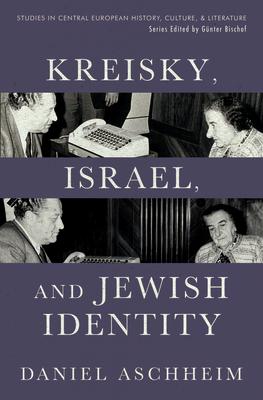
The book revolves around understanding and illuminating the myriad ways in which Kreisky's Jewishness was--or was not--a formative factor in his treatment of "Jewish" questions within Austrian politics, Austrian-Israeli relations, and his active engagement in Middle Eastern affairs. This deeper understanding mainly emerges through examining Kreisky's actions during several pivotal events like the Kreisky-Peter-Wiesenthal affair, the Waldheim affair, the 1973 Marchegg incident, and his overall relationship to Zionism, the State of Israel, and the Palestinian Arab world.
This book is not a comprehensive biography of Kreisky. Instead, it attempts to document and place Kreisky's fraught engagement with his Jewishness and the related sensitive issues that touched upon it in a historical, political, ideological, and personal context. This mainly comes down to the entangled and always-ambiguous politics of identity, especially his understanding of his Jewishness.
The book revolves around understanding and illuminating the myriad ways in which Kreisky's Jewishness was--or was not--a formative factor in his treatment of "Jewish" questions within Austrian politics, Austrian-Israeli relations, and his active engagement in Middle Eastern affairs. This deeper understanding mainly emerges through examining Kreisky's actions during several pivotal events like the Kreisky-Peter-Wiesenthal affair, the Waldheim affair, the 1973 Marchegg incident, and his overall relationship to Zionism, the State of Israel, and the Palestinian Arab world.
This book is not a comprehensive biography of Kreisky. Instead, it attempts to document and place Kreisky's fraught engagement with his Jewishness and the related sensitive issues that touched upon it in a historical, political, ideological, and personal context. This mainly comes down to the entangled and always-ambiguous politics of identity, especially his understanding of his Jewishness.
Paperback
$18.95